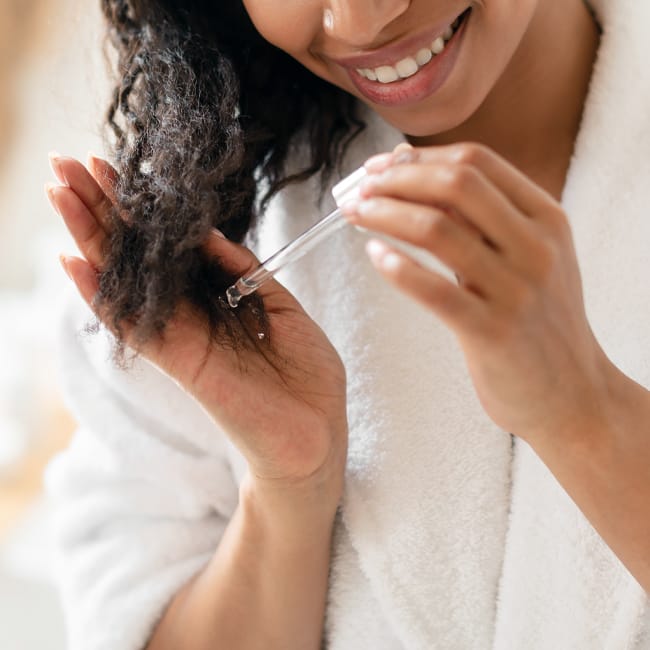When it comes to anti-aging skincare, it can be hard to know which products will actually do the job. It’s easy to get overwhelmed by the vast amount of drugstore serums claiming to reverse the effects of aging, so we reached out to a few doctors and skincare experts to get the lowdown. Experts warn us that two popular anti-aging serum types – collagen and plant extract – are often not worth your money.
Keep reading to learn which three kinds of serums are actually important to use, and tips for choosing the right products for your own anti-aging skincare needs. We caught up with expert Dr. Jenelle Kim, skincare formulator and founder of JBK Wellness Labs, for helpful suggestions and insight.


Experts Weigh In: 2 'Anti-Aging' Serums to Avoid at the Drugstore
1. Collagen Serums
While collagen is an essential protein for skin elasticity, Kim says that collagen molecules are often "too large to penetrate the skin effectively," making a collagen serum unnecessary for anti-aging goals.
Instead, she recommends looking for serums that "promote collagen synthesis," such as vitamin C, or stimulate the skin's natural collagen production, "such as retinol."
Luckily, there are also other ways to obtain the benefits of collagen as it can be boosted with the help of foods like chicken, fish, egg whites, citrus fruits, berries and leafy greens.

2. Expensive Plant Extract Serums
"Some serums feature exotic plant extracts with claims of miraculous anti-aging effects," Kim points out. However, she stresses that the "scientific evidence supporting these claims may be limited." It's essential, she notes, to prioritize serums with "proven active ingredients."
With that said, Kim says that the following three kinds of serums (that you can find at your local drugstore) are "actually worth it" for smoother, more radiant, supple and hydrated skin: vitamin C, hyaluronic acid and retinol. We'll break them all down:

3 Serums That Are Actually 'Worth It' For Anti-Aging
1. Vitamin C
One natural and essential serum Kim swears by for a more dewy complexion is vitamin C. This type of serum, she says, is a "potent antioxidant that helps protect the skin from free radicals, which can cause premature aging."
This serum also "promotes collagen synthesis, brightens the complexion, and improves skin tone and texture," which are all important for maintaining a youthful glow.

2. Hyaluronic Acid
Hyaluronic acid is a hydrating ingredient, Kim says, and it is useful in a serum since it "attracts and retains moisture in the skin, improving its elasticity and plumpness."
It can help "minimize the appearance of fine lines and wrinkles," she adds, and she notes that this gives your skin a "more youthful look overall."

3. Retinol
Last but certainly not least, Kim says that retinol is a "derivative of vitamin A and is highly regarded for its anti-aging properties." When used in a serum, Kim adds that it aids in "reducing the appearance of fine lines, wrinkles, and uneven skin texture" while "promoting collagen production and cellular turnover."

The Bottom Line
Ultimately, Kim concludes that it's advisable to "invest in serums that target specific skin concerns and have a solid scientific foundation supporting their claims."
Prioritizing serums with active ingredients like retinol, vitamin C, and hyaluronic acid can "provide a strong foundation for an anti-aging skincare routine," she notes.
It's also worth noting, Kim continues, that consistency and overall skincare habits, such as "sun protection and moisturization play crucial roles" in maintaining healthy and youthful-looking skin.


























